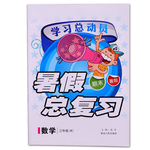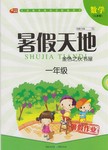题目内容
When I was seven, my father gave me a Timex, my first watch. I loved it, wore it for years, and haven’t had another one since it stopped ticking a decade ago. Why? Because I don’t need one. I have a mobile phone and I’m always near someone with an iPod or something like that. All these devices (装置) tell the time — which is why, if you look around, you’ll see lots of empty wrists (手腕); sales of watches to young adults have been going down since 2007.
But while these wise people have realized that they don’t need them, others — including some distinguished ones of our time — are spending total fortunes on them. Brands such as Rolex, Patek Philippe and Breitling command shocking prices, up to £ 250.000 for a piece.
This is ridiculous. Expensive cars go faster than cheap cars. Expensive clothes hang better than cheap clothes. But these days, all watches tell the time as well as all other watches. Yes, you may say expensive watches will come with some extra functions — but who needs them? How often do you dive to 300 metres into the sea to test its function of waterproof, or need to find your direction in the area around the South Pole by using its compass? So why pay that much of five years’ school fees for watches that allow you to do these things?
If justice were done, the Swiss watch industry should have closed down when the Japanese discovered how to make accurate watches for a five-pound note. Instead, the Swiss re-invented the watch, with the aid of millions of pounds’ worth of advertising, as a message about the man —— usually a famous star, wearing it. Rolexes are for those who spend their weekends climbing icy mountains; a Patek Philippe is for one from a rich or noble family; a Breitling suggests you like to pilot planes across the world.
Watches are classified as “investment items” (投资项目) now. A 1994 Philippe recently sold for nearly £ 350, 000, while 1960s Rolexes have gone from 15, 000 to 30, 000 plus in a year. But, to some wealthy people, a watch is more than an investment. It’s a valuable toy for self-satisfaction, a matter of fashion. Prices may keep going up — they’ve been rising for fifteen years. But when fashion moves on, the owner of that £ 350, 000 treasured object will suddenly find his pride and joy is no more a good investment than my childhood Times.
小题1:The sales of watches to young people have fallen because ______.
小题2:It seems ridiculous to the writer that ______.
小题3:What can be learnt about Swiss watch industry from the passage?
小题4:Which would be the best title for the passage?
But while these wise people have realized that they don’t need them, others — including some distinguished ones of our time — are spending total fortunes on them. Brands such as Rolex, Patek Philippe and Breitling command shocking prices, up to £ 250.000 for a piece.
This is ridiculous. Expensive cars go faster than cheap cars. Expensive clothes hang better than cheap clothes. But these days, all watches tell the time as well as all other watches. Yes, you may say expensive watches will come with some extra functions — but who needs them? How often do you dive to 300 metres into the sea to test its function of waterproof, or need to find your direction in the area around the South Pole by using its compass? So why pay that much of five years’ school fees for watches that allow you to do these things?
If justice were done, the Swiss watch industry should have closed down when the Japanese discovered how to make accurate watches for a five-pound note. Instead, the Swiss re-invented the watch, with the aid of millions of pounds’ worth of advertising, as a message about the man —— usually a famous star, wearing it. Rolexes are for those who spend their weekends climbing icy mountains; a Patek Philippe is for one from a rich or noble family; a Breitling suggests you like to pilot planes across the world.
Watches are classified as “investment items” (投资项目) now. A 1994 Philippe recently sold for nearly £ 350, 000, while 1960s Rolexes have gone from 15, 000 to 30, 000 plus in a year. But, to some wealthy people, a watch is more than an investment. It’s a valuable toy for self-satisfaction, a matter of fashion. Prices may keep going up — they’ve been rising for fifteen years. But when fashion moves on, the owner of that £ 350, 000 treasured object will suddenly find his pride and joy is no more a good investment than my childhood Times.
小题1:The sales of watches to young people have fallen because ______.
| A.they have other devices to tell the time |
| B.they think watches are too expensive |
| C.they have little sense of time now |
| D.they prefer to wear an iPod on their wrists |
| A.some people often dive 300 metres deep into the sea |
| B.expensive clothes sell much better than cheap ones |
| C.cheap cars usually don’t run as fast as expensive ones |
| D.expensive watches with unnecessary functions still sell |
| A.It targets rich people as its potential customers. |
| B.It seems hard for the industry to beat its competitors. |
| C.It wastes a huge amount of money in advertising. |
| D.It is easy for the industry to re-invent cheap watches. |
| A.Timex Being better than Rolex |
| B.My Expensive Childhood Timex |
| C.Super-level Watches? Not for Me! |
| D.Watches — a Valuable Collection |
小题1:A
小题2:D
小题3:A
小题4:C
小题1:细节理解题。在文中第一段就提到,身边最来越多的年轻人不再使用手表,而是使用手机,iPod或是类似的产品来报时。选项B,D在文中没有提及,选项C只提到单一的替代品,不完整。所以选A
小题2:细节理解题。选项A在文中第三段提到,但作者嘲笑的并不是有人潜入300米深的海底,属于偷换概念,故不选;选项B,C作者只描述了社会现象并未加入自己的评论,故不选。所以选D
小题3:推理判断题。选项A是反复在文中反应出的观点;选项B在文中并未提到;选项C,答案曲解了作者的意思,作者并未觉得这个行为是一种巨大的浪费;选项D文中没有提及到。综上,选A
小题4:文章标题题。本文主旨在批判手表作为奢侈品在销售的一种现象,选项A形式像是比较两种表的优劣,选项B明显示意这是篇描述物品或童年的记叙文,选项D与文章主旨矛盾,三选项皆与主旨不符。所以选C

练习册系列答案
 学期复习一本通学习总动员期末加暑假延边人民出版社系列答案
学期复习一本通学习总动员期末加暑假延边人民出版社系列答案 芒果教辅暑假天地重庆出版社系列答案
芒果教辅暑假天地重庆出版社系列答案
相关题目